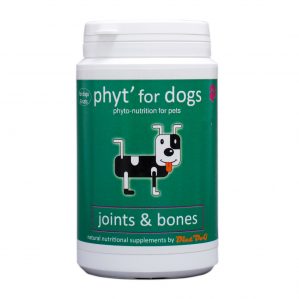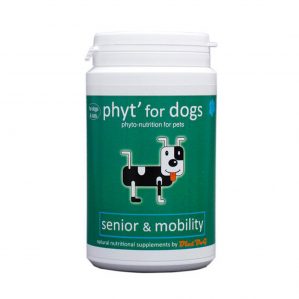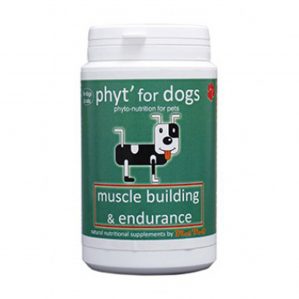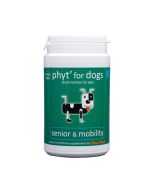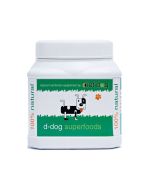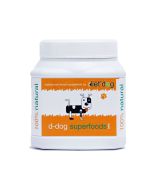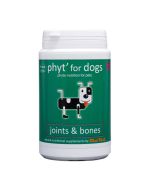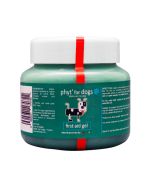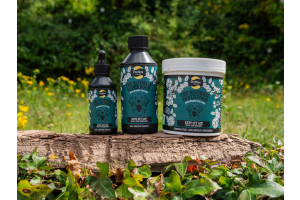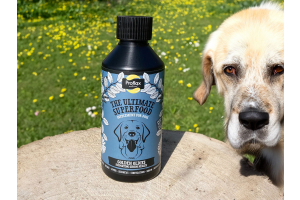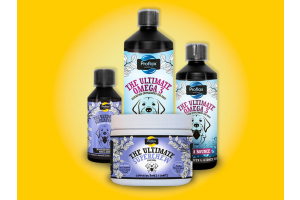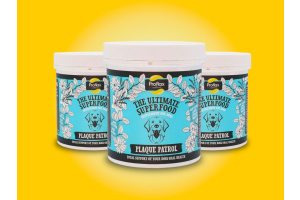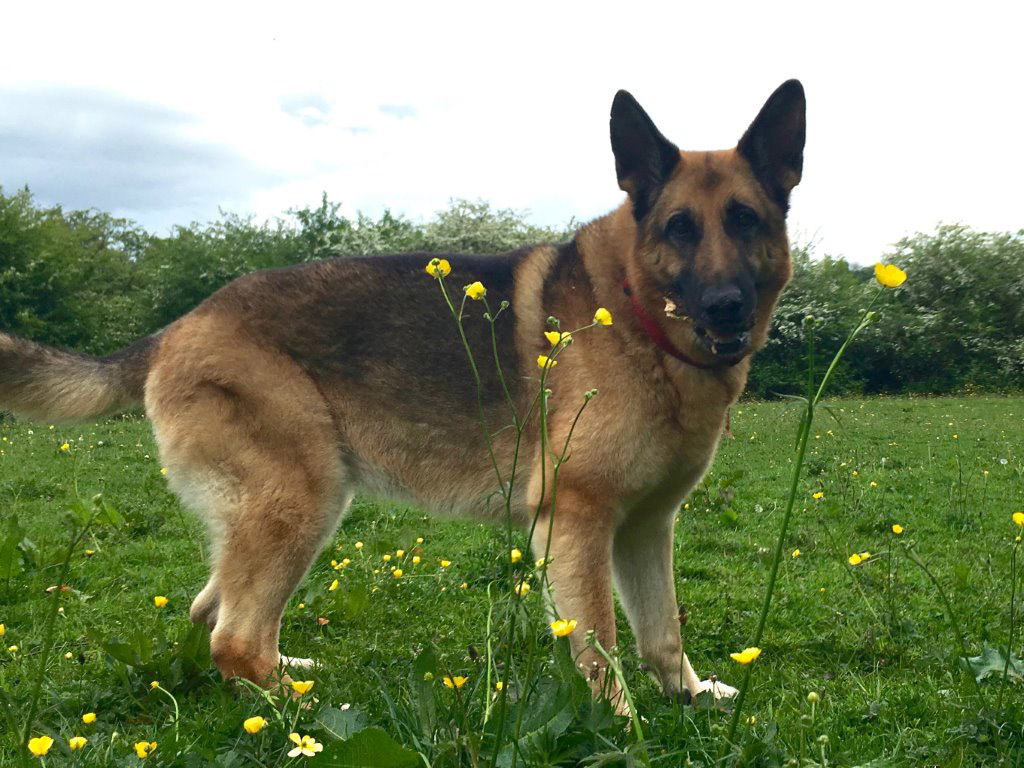
Natural therapies, good nutrition, herbs and homeopathy can all keep dogs affected by Hip Dysplasia more mobile and less stiff, with less reliance on potentially harmful pharmaceutical drugs. Let's understand more about Hip Dysplasia in Dogs (by Richard Allport, Diet-Dogs Product Advisor and Vet)
What is Hip Dysplasia and Signs of Hip Dysplasia in Dogs?
Hip Dysplasia is an abnormal growth and development of one or both hip joints leading to pain, stiffness and arthritis in the hips. It is most common in large breeds such as the German Shepherd Dog, Labrador Retriever, Great Dane and Saint Bernard. It seems to be a hereditary condition but can be triggered by such factors as obesity, poor nutrition and over exercise in puppies.
Treatment for Hip Dysplasia in Dogs
Treatment is usually by administering anti inflammatory drugs and in severe cases surgery. Drugs can cause adverse effects and surgery is a major procedure and best avoided, especially in older dogs.
Acupuncture and Hydrotherapy can help
Acupuncture is of immense value in reducing pain and reducing stiffness – this must be carried out by a vet and needs three or four weekly sessions followed by sessions at intervals of four to six weeks on average. Hydrotherapy, physiotherapy and massage are all useful, but these treatments should be carried out by experienced animal health professionals.
Diet and Hip Dysplasia
A high protein, low carbohydrate diet will help minimise symptoms of Hip Dysplasia and also help prevent obesity. Dogs are carnivores and are healthiest – and have stronger bones and muscles - on a diet as close to their natural diet of meat, offal, bones and vegetables as possible.
Herbs and homoeopathic medicines are often effective
Natural medicines, supplements and therapies can be very effective in easing pain and improving mobility, and in slowing down deterioration of the hip joints. There are a number of herbal formulations that are of real benefit to dogs affected by Hip Dysplasia. In particular:
Diet'Dog Joints and Bones which contains a combination of herbal ingredients together with Chondroitin, Glucosamine, MSM and Marine collagen that help prevent the breakdown of cartilage in joints, stimulate the production of new cartilage, so preserving joint integrity, decrease inflammation and prevent inflammatory-induced destructive processes from occurring (such as the arthritis seen in Hip Dysplasia).
Diet’Dog 'Senior and Mobility' comprises plants with anti-rheumatic properties (such as fucus, willow bark, curcuma, cat's claw, nettle) and plants with anti-inflammatory properties (harpagophytum (devil's claw), horsetail, meadowsweet, orthosiphon aristatus) to help relieve the pain of arthritis and rheumatism and so make movement easier. It also helps improve the mobility problems that often occur in dogs with Hip Dysplasia.
Diet'Dog Muscle Building and Endurance. This formulation helps promote the efficient functioning of pets' muscles and enhance skeletal muscle activity. Rich in protein and essential amino acids (but low in fat) and nutrient dense green "superfoods" (Spirulina, Chlorella, Kelp such as laminaria, ascophyllum and fucus), it also helps promote energy and muscle strength, helps with weight management and with overall health and well-being.
D-Dog 'Superfoods' and ‘D-Dog Superfoods Beta’ are a nutrient rich natural formulation which promotes general health and vitality and also contains Omega 3 fatty acids which act as a natural anti inflammatory for dogs affected by Hip Dysplasia.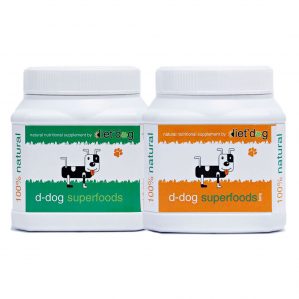 For more information on the Diet’Dog products that we sell visit the website and view brands.
For more information on the Diet’Dog products that we sell visit the website and view brands.
To view all our ranges of joint support, please click here.
This blog article has been written by Richard Allport BVetMed, VetMFHom, MRCVS, Diet’Dog’s consultant vet. Richard has been a vet for nearly forty years and has had a special interest in herbal and other natural medicines for pets for thirty years. For advice on homoeopathic therapy find a vet via the website www.bahvs.com
If you would like to discuss any aspect of this article or have any questions, then please contact us on: 01565 740 777.
